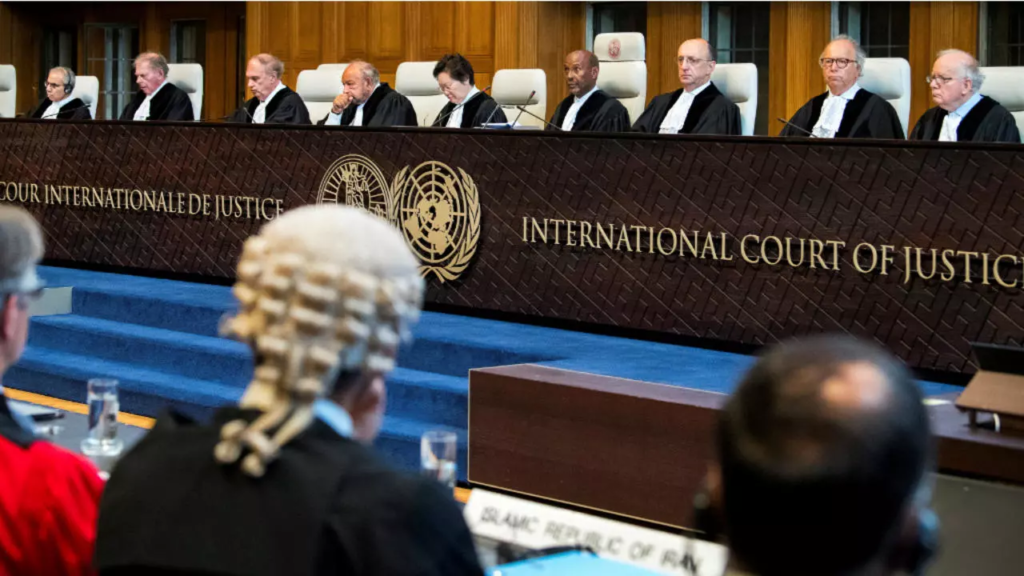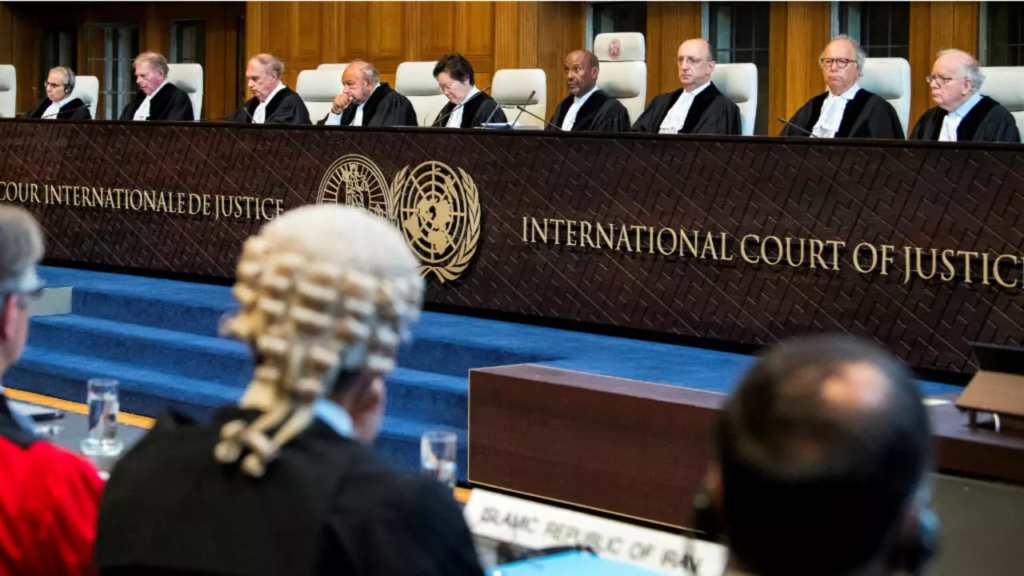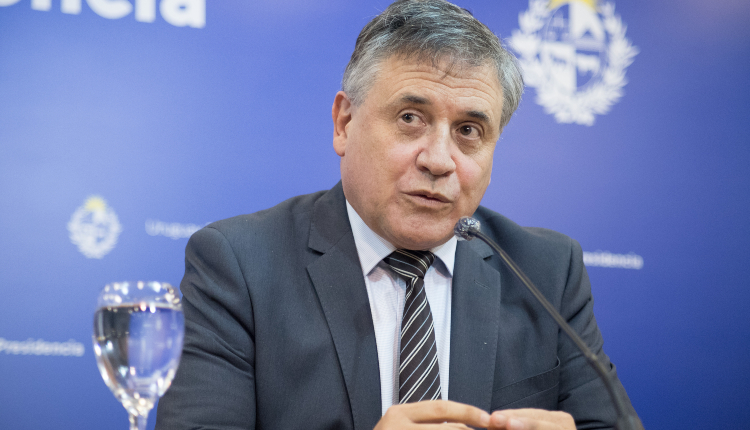
The Academy of Political and Social Sciences held twelve forums on the dispute between Guyana and Venezuela. These meetings were from May 6, 2021 to March 31, 2022 and were characterized by their high historical, legal and political content. The sessions were designed and coordinated by academician Héctor Faúndez Ledesma, professor at the Central University of Venezuela and author of the book The contentious jurisdiction of the International Court of Justice and the case of Guyana vs. Venezuela (Venezuelan legal publisher, Caracas, 2020), which is a valuable contribution to the understanding of this matter.
The forums on the controversy are available on the YouTube channel of the Academy of Political and Social Sciences and on the channel of the Fundación Universitas. In this way, the conflict can be examined by all. Everyone will be able to consider what is best for our country. An easy conclusion to draw from these days is clear: Venezuela cannot sit idly by and must appear before the International Court of Justice (ICJ) to defend itself. Failure to do so would be an irreparable error that would affect the defense of our interests.
Venezuela has until March 2023 to present its “counter-memorial”. And this because on December 18, 2020, the ICJ declared its jurisdiction to hear Guyana’s claim against Venezuela, and thereby judicialized the dispute. Until now, the Venezuelan government still does not know what it will do, although it seems to be unwilling to participate in the trial and thus ignore the jurisdiction of the ICJ.
By not participating, the opportunity to present arguments at the public hearing to which the parties will be summoned is lost, and to request provisional measures to stop the exploitation of the mineral and oil resources located in the area in dispute. If we decide to appear, we will be empowered to formulate our allegations under protest, and ratify the full validity and force of the Geneva Agreement, as well as appoint a judge. ad hoc. The advantages of presenting ourselves in the process are clear.
If Venezuela participates, it would have a court of the highest level to demonstrate the annulment of the Arbitration Award of 1899, since this verdict is unmotivated and was the product of procedural fraud, achieved through “arbitrariness and transactions behind the back of one of the States in question.” litigation”, as stated by Héctor Faúndez Ledesma in his aforementioned book (p. 328). This is sufficiently documented, and can be demonstrated. But in order to attack the fraudulent Award it is vital to participate in the litigation.
As far as sovereignty over the disputed territory is concerned, we Venezuelans have seminal studies carried out by the Jesuit priest Hermann González Oropeza, who, in his book Atlas of the cartographic history of Venezuela (Diego Cisneros Foundation, Enzo Papi Editor, Caracas, 1987) demonstrates the consistency of our titles. We also have the valuable contributions of Professor Manuel Donis Ríos, embodied in Venezuela and its maritime spaces in the Atlantic yesterday and today (Caracas, Abediciones, 2020), a work that accurately ratifies the undoubted strength of Venezuelan titles.
The presence of Venezuela in the process that is being followed in the ICJ is an opportunity to curb illegal mining, as well as the exploitation of gas and oil that is currently extracted from the conflict zone, or its maritime projection. But the territorial integrity, the environment and the security of Venezuelans are also at stake. For this reason, control of the spaces dominated by international crime, piracy, trafficking in women and children, drug trafficking and other transnational criminal activities is required. This is an aspect that cannot be ignored.
It is worth remembering that the greatest achievement of our country in the conflict with Guyana has been the Geneva Agreement. This success rests on the performance of leaders of the civil era. Among them, Marcos Falcón Briceño, who, as chancellor of Rómulo Betancourt, denounced the Arbitration Award of 1899 on November 12, 1962. With the Geneva Agreement, the United Kingdom and Guyana recognized that they had a territorial dispute with Venezuela.
The Geneva Agreement is an achievement of civil governments, in which there was a consensus around the dispute with Guyana, devoid of circumstantial agendas and automatic solidarities. Both Rómulo Betancourt, Raúl Leoni and Rafael Caldera handled this issue broadly, without commonplaces and with a long-range view. Exclusion would not have allowed this important triumph of our diplomacy. Everything continued on the right track and in the government of Raúl Leoni, Foreign Minister Ignacio Iribarren Borges signed the Geneva Agreement on February 17, 1966, which has been -I repeat- the greatest Venezuelan success in the controversy. And all this because the matter was handled by statesmen.
As an obstacle that must be overcome we have the ideological element that has been involved in this vital issue for Venezuela. In the first place, the Cuban position of supporting Guyana. Indeed, Castroism has not hesitated to expose its position for years. This was the case with the statement by Fidel Castro’s Cuban Foreign Minister, Ricardo Alarcón, who on October 7, 1981 stated: “The Venezuelan claim is proof of expansionism and Guayana [Guyana] It has full right to enjoy its entire territory with full freedom.” We cannot forget that Guyana served as a military bridge for the Cuban troops in the war in Angola. The foregoing must be remembered, in view of the unappealable influence of the Castro government on Venezuelan affairs. In this matter, Cuba has interests opposed to those of Venezuela. What it is about is defending our territorial integrity without bowing down to political solidarities.
The second ideological bond is contained in the reckless statements of President Hugo Chávez in 2007, who surprisingly stated that the Venezuelan claim began “due to pressure from the United States to destabilize the communist government of Chaddy Jagan.” In this way, in addition to introducing the political and ideological seasoning, the substance of what is debated in this delicate matter is distorted. After the statements of the then president of Venezuela, the government of the Cooperative Republic of Guyana began a series of abuses against our sovereignty, by aggressively intruding into our maritime space. This was denounced by the Academy of Political and Social Sciences in a statement on October 1, 2013. Fortunately, in that same year the Venezuelan Navy stopped some vessels that were carrying out oil studies in the claimed area. This performance of the Armed Forces deserves to be recognized.
Venezuela is right, but there are no guarantees of a favorable sentence. This is how litigation works: whoever is right must prove it with arguments of fact and law. Refraining from participating in the process and refusing to present arguments is a bad decision. We cannot give up the possibility of requesting the annulment of the unmotivated and fraudulent Award of 1899. And all this will be the responsibility of those who govern Venezuela.
In Guyana, all sectors are united in relation to the dispute with Venezuela. We, on the contrary, are divided. This internal division constitutes another obstacle that must be overcome. The government has handled this issue without the participation of all sectors; rather, regardless of what the ICJ may decide, and without weighing the effects of an adverse ruling. In this dispute there is no room for discrimination for ideological or political reasons. What is at stake is part of our territory, our wealth and Venezuela’s access to the Atlantic.
The dispute with Guyana must be addressed with State criteria, without excluding anyone for reasons of internal politics. What it is about is exercising leadership and convening the experts so that they can prepare the best procedural defense and write the counter-memorial that must be presented in the International Court of Justice. The vital destiny of Venezuela demands it.








